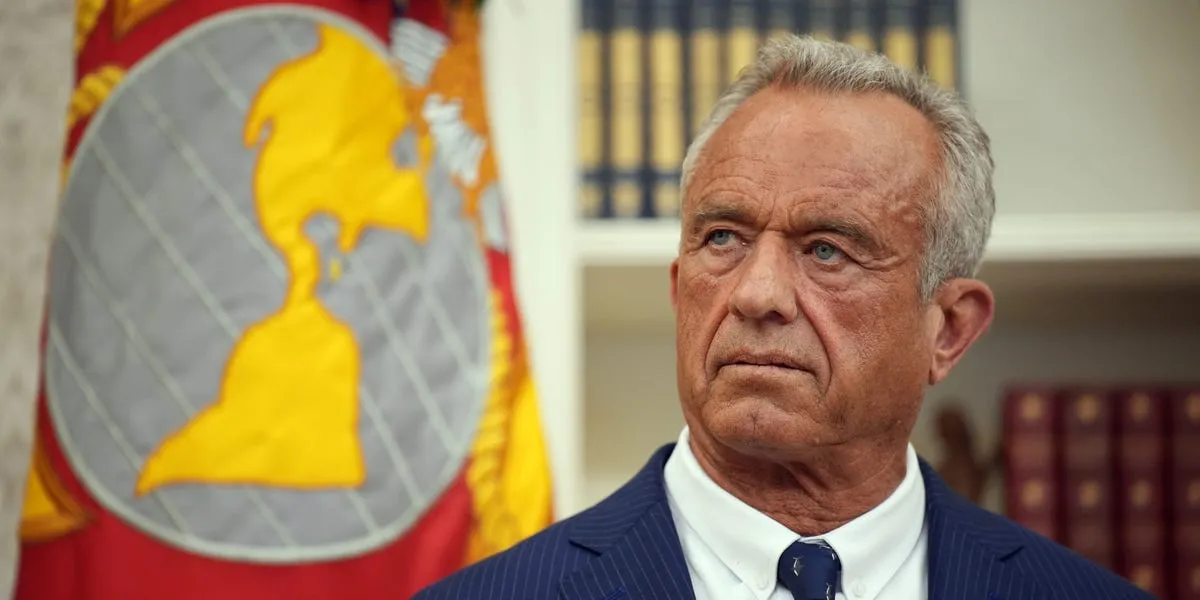
In a noteworthy response to the ongoing measles outbreak in the U.S., Health Secretary Robert F. Kennedy Jr. has proposed that vitamin A might be beneficial in treating the disease. While vitamin A is widely used globally to assist children suffering from measles, it is essential to clarify that it does not prevent infection. This suggestion has sparked concern among health professionals, who argue that Kennedy's remarks echo certain anti-vaccine talking points.
The measles outbreak is particularly severe in regions like West Texas and New Mexico, where at least 146 individuals have contracted the disease, resulting in one tragic death. In an op-ed published in Fox News, Kennedy acknowledged the protective role of the MMR vaccine against measles but refrained from directly urging Americans to vaccinate, stating that the choice to vaccinate should be a personal one.
Kennedy mentioned that the CDC has released new guidance regarding the potential use of vitamin A in treating measles, reinforcing the importance of a well-balanced diet as a robust defense against both chronic and infectious diseases. In a follow-up interview with Fox News, he even suggested the use of cod liver oil, a supplement rich in vitamin A and vitamin D, as a treatment option, which did not resonate well with public health experts.
While vitamin A is recognized as a treatment for measles, especially in cases where patients are vitamin deficient due to malnutrition, experts express concern about Kennedy's messaging. According to doctors and researchers speaking to Business Insider, there is no evidence that vitamin A can prevent measles infection. They worry that Kennedy's statements could lead to misconceptions, suggesting that supplements could serve as an alternative to vaccinations.
Immunologist Andrea Love criticized the ambiguity in Kennedy's statements, arguing that emphasizing good nutrition and vitamin A will not effectively stop a measles outbreak. She stated, "Good nutrition and vitamin A are not going to stop a measles outbreak," highlighting the need for clear messaging regarding vaccination.
Vitamin A is indeed administered to measles patients, particularly if they are deficient in the nutrient, as both the World Health Organization and the American Academy of Pediatrics recommend. Measles can deplete the body’s vitamin A supply, and children lacking sufficient vitamin A are at increased risk for severe infections and complications, including high fever and even death. Therapeutic doses of vitamin A can range from 15,000 to 60,000 micrograms RAE per dose, significantly higher than the typical daily recommendation of 700 to 900 micrograms RAE.
It is critical to note that cod liver oil is not a standard treatment for measles in the United States, where vitamin A deficiency is less common due to abundant dietary sources. Experts caution that simply increasing vitamin A intake will not protect against measles infection. Christopher Sudfeld, a nutrition professor at Harvard, emphasized that while research supports vitamin A's role in reducing complications from measles, it does not prevent infection. He stated, "The best intervention we have to prevent measles is vaccination," reinforcing that the MMR vaccine is both safe and effective.
Moreover, excessive intake of vitamin A can lead to toxicity, as it is a fat-soluble vitamin that accumulates in body tissues over time. Health risks associated with vitamin A overdose include headaches, fatigue, joint pain, liver damage, and reduced bone density. Love voiced concerns that individuals might start megadosing on vitamin A after receiving mixed messages, potentially leading to increased toxicity cases.
The gold standard for protecting against measles remains widespread MMR vaccination, which is crucial in controlling the spread of this highly infectious virus. It's important to understand that vaccinated individuals can be infectious for several days before showing symptoms, and the virus can linger in the air for hours. As Dr. Eduardo Villamor, a professor of epidemiology at the University of Michigan, stated, "The most effective preventive measure is vaccination," emphasizing that this message cannot be overstated.